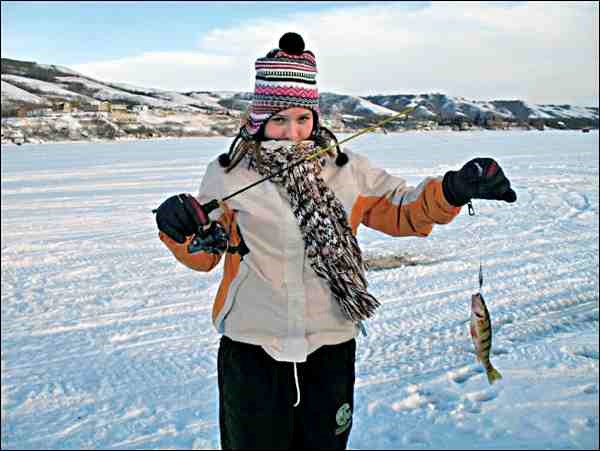Summer is on the wane and few things can beat the pleasure and relaxation of a day with the old rod and reel.
The province has an estimated 94,000 lakes, of which approximately 50,000 contain fish. Out of the 69 species of fish in Saskatchewan, 21 are most coveted by anglers.
"Saskatchewan has some of the best angling in the world and we all need to be good stewards of this resource," says Saskatchewan Environment Conservation Officer, Gary Provencher.
The ministry also encourages the sport with free fishing days, where an angling licence is not required.
The next free fishing weekend will take place Feb. 14 to 16 to encourage ice fishing.
Anglers are asked to keep in mind that daily fish limits are still in place during free fishing days.
Other than free fishing weekends, angling licences are required to fish in Saskatchewan, unless the fisher is less than 16 years of age or a Saskatchewan resident age 65 and over.
Anglers are reminded that creating an account on the ministry's Hunting, Trapping, and Angling Licence (HAL) system is a one-time requirement. If you already have an online HAL account, you do not need to create another.
New for 2014, a one-day licence has been introduced as a convenience to occasional anglers in the southern and central zones. The cost is $10 for Saskatchewan residents, $15 dollars for Canadian residents, and $20 dollars for non-residents. The licence can be purchased online.
There is no longer a fee for replacing angling licences, as users can now go online and print out their own replacement licence.
The voluntary fine for angling without a licence is $100, plus $25 per fish. The cost for an annual angling licence is less than $30 for a Saskatchewan resident, so it really pays to be onside of the law.
The 2014 Anglers' Guide is an angler's best resource for information about regulations and requirements. Anyone who purchases a fishing licence will receive a guide, which is available from licence vendors and ministry offices. They can also be printed at home via the ministry's website at saskatchewan.ca/fishing.
One big change this year is that fines for the more serious resource infractions have doubled.
For example, the fine for exceeding angling limits has increased from $100 to $200, plus $50 per fish to a maximum of $2,000.
"The first couple weeks of June are popular for fishing, and people will sometimes engage in what we call 'double dipping,'" says Provencher. "They go out and catch their daily limit of fish, go back to their homes, and then come back after dinner to catch more fish. This is illegal."
Another thing to keep in mind is that, while commercial fishers can sell their fish, the fish caught by recreational anglers can only be used for personal use.
"For those wanting to transport fish, it is important to make sure the fish can be easily identified, measured, separated, and unwrapped. Dressed fish fillets must have at least 2.5cm (1 inch) square patch of skin with scales intact (other than belly) attached to the fillet. Fillets cannot be cut into pieces."
Remember that fish in cold storage also count toward daily limits.
There have also been some changes to regulations regarding who may fish with individuals fishing under their Treaty or Aboriginal rights. No person other than an Indian or a Métis, or a member of their immediate family, may assist, aid or fish with any Indian or Métis fishing for food pursuant to Aboriginal or Treaty rights. The words "fish with" were added to the previous regulation to prevent non-Aboriginals from taking or possessing more than their legal limit of fish.
Anyone observing fisheries or other resource violations can call the ministry's toll-free Turn-In-Poachers (TIPS) hotline at 1-800-667-7561 24 hours a day to report violations. Violations may also be reported online at saskatchewan.ca/conservation. You may be eligible for cash rewards from the SaskTip Reward Program.




